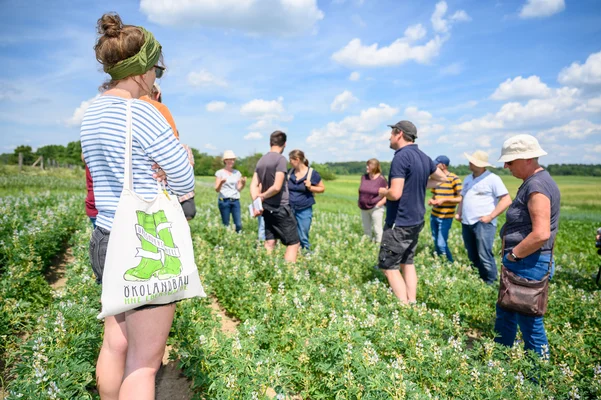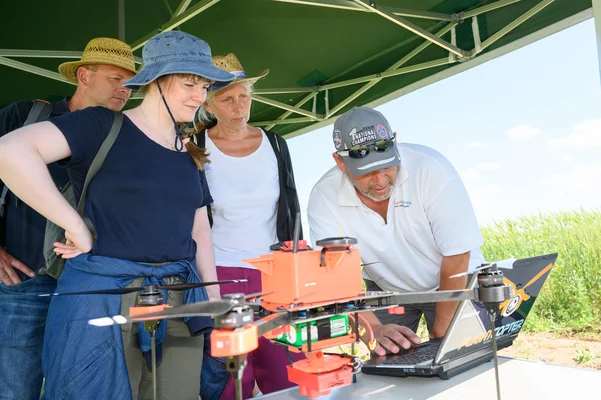Centre for Sustainable Nutrition Innovation (INES)
Thinking ahead together in the organic farming and food sector
Welcome to the Centre for Sustainable Nutrition Innovation (INES) at Eberswalde University for Sustainable Development!
We are a scientific institution that offers a platform for exchange and reliable cooperation between practice, teaching and research, as a long-term procedural and social infrastructure. INES creates a space where teachers, researchers, students and practitioners can experiment together, and develop and test innovative solutions for sustainable food systems.
Practice-based teaching and application-oriented research take up (sustainability) topics from practice. The partnership-based learning processes and results benefit all those involved: practitioners, academia and students. In this way, INES exemplifies HNEE's transdisciplinary focus and our understanding of → sustainability transfer.

As a foundation, INES establishes and maintains a vibrant practice-teaching-research network, within which researchers, teachers and students work together with practitioners from all areas of the organic agriculture and food industry, food crafts, community catering, and with actors from civil society, education, consultancy, politics and administration.
Our goal is to advance the necessary innovation processes in the organic food and farming sector and in the food system, and thereby make the entire value-added chain sustainable.

Potato variety comparison in the field on 22 August 2023.

Organic Agriculture & Marketing

Researcher explains the use of a drone to practitioners.
Our values: co-creation, equality and diversity
INES provides an open platform for transdisciplinary, impact-oriented collaboration between teaching, research and practice. A key quality for us is working together on an equal footing. We aim to create a working environment in which everyone involved feels valued, guided by the → mission statement of the university.
In co-creative processes shaped by mutual, partnership-based exchange of knowledge, ideas and experience from both science and practice, HNEE researchers and students develop → sustainability solutions together with practitioners. The results benefit all involved – a genuine win-win!
Transdisciplinary research, in which non-scientific partners are closely involved in the development of research questions and the research process, is particularly relevant for transformation-oriented approaches in the agricultural, food and nutritional sciences.
from the report of the German Council of Science and Humanities
Perspectives in agricultural, food and nutritional sciences
